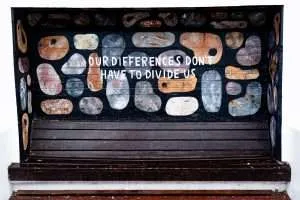If you’re interested in sociology and want to use your skills to make a difference in the world, you might be wondering what kind of job opportunities are available for applied sociologists. Applied sociology jobs can be found in a variety of industries, including healthcare, education, government, and business. In this post, we’ll explore some of the career paths and opportunities for those with a background in applied sociology.
What is Applied Sociology?

First, let’s define what we mean by applied sociology. Applied sociology is the use of sociological principles, theories, and methods to solve real-world problems. Applied sociologists work outside of academia and apply their knowledge of sociology to address social issues and improve people’s lives. Applied sociologists may work in a variety of settings, including non-profit organizations, government agencies, research institutions, and private companies.
Applied Sociology Jobs
There are several career paths available for those interested in applied sociology. Here are a few examples:
- Social Researcher: Social researchers use sociological methods and theories to design and conduct research studies on social issues. They may work for government agencies, research institutions, or non-profit organizations.
- Policy Analyst: Policy analysts use their knowledge of sociology to analyze policies and propose changes that will improve people’s lives. They may work for government agencies or non-profit organizations.
- Community Organizer: Community organizers work to bring together people in a community to address social issues and improve their quality of life. They may work for non-profit organizations or community-based groups.
- Human Resources Specialist: Human resources specialists use their knowledge of sociology to design and implement workplace policies that promote diversity, equity, and inclusion. They may work for private companies or government agencies.
- Program Evaluator: Program evaluators use sociological methods and theories to evaluate the effectiveness of programs aimed at addressing social issues. They may work for government agencies, non-profit organizations, or research institutions.
Job Opportunities in Applied Sociology
Now that we’ve explored some of the career paths available for applied sociologists, let’s look at some specific job opportunities. Here are a few examples:
- Research Associate: A research associate works on research projects aimed at addressing social issues. They may be responsible for conducting literature reviews, collecting and analyzing data, and writing reports. Research associates may work for government agencies, research institutions, or non-profit organizations.
- Program Coordinator: A program coordinator oversees programs aimed at addressing social issues. They may be responsible for managing budgets, coordinating staff, and ensuring that programs are meeting their goals. Program coordinators may work for non-profit organizations, government agencies, or community-based groups.
- Diversity and Inclusion Specialist: A diversity and inclusion specialist uses their knowledge of sociology to design and implement workplace policies that promote diversity, equity, and inclusion. They may be responsible for developing training programs, conducting diversity audits, and advising senior management. Diversity and inclusion specialists may work for private companies or government agencies.
- Community Outreach Coordinator: A community outreach coordinator works to build relationships with community members and organizations to address social issues. They may be responsible for organizing events, building partnerships, and raising awareness about social issues. Community outreach coordinators may work for non-profit organizations, government agencies, or community-based groups.
- Policy Advocate: A policy advocate works to influence policy decisions that affect social issues. They may be responsible for lobbying policymakers, organizing grassroots campaigns, and building coalitions. Policy advocates may work for non-profit organizations, government agencies, or advocacy groups.
Applying for Applied Sociology Jobs
If you’re interested in applying for a job in applied sociology, there are a few things you can do to increase your chances of success. First, it’s important to tailor your resume and cover letter to the specific job you’re applying for. Highlight your relevant skills and experience, and demonstrate how your background in sociology makes you a strong candidate for the position.
Networking can also be a valuable tool in your job search. Attend industry events, join professional organizations, and connect with people in your field on social media. This can help you learn about job openings, make valuable connections, and get advice from experienced professionals.
Finally, consider pursuing additional education or certifications to make yourself more competitive in the job market. A master’s degree in applied sociology or a related field can be particularly helpful in securing certain positions.
Final Thoughts on Applied Sociology Jobs
Applied sociology offers a range of job opportunities for those interested in using their sociological knowledge to make a difference in the world. From social research to policy advocacy, there are many paths you can take in this field. By tailoring your job search, networking, and pursuing additional education or certifications, you can increase your chances of success in landing an applied sociology job.







